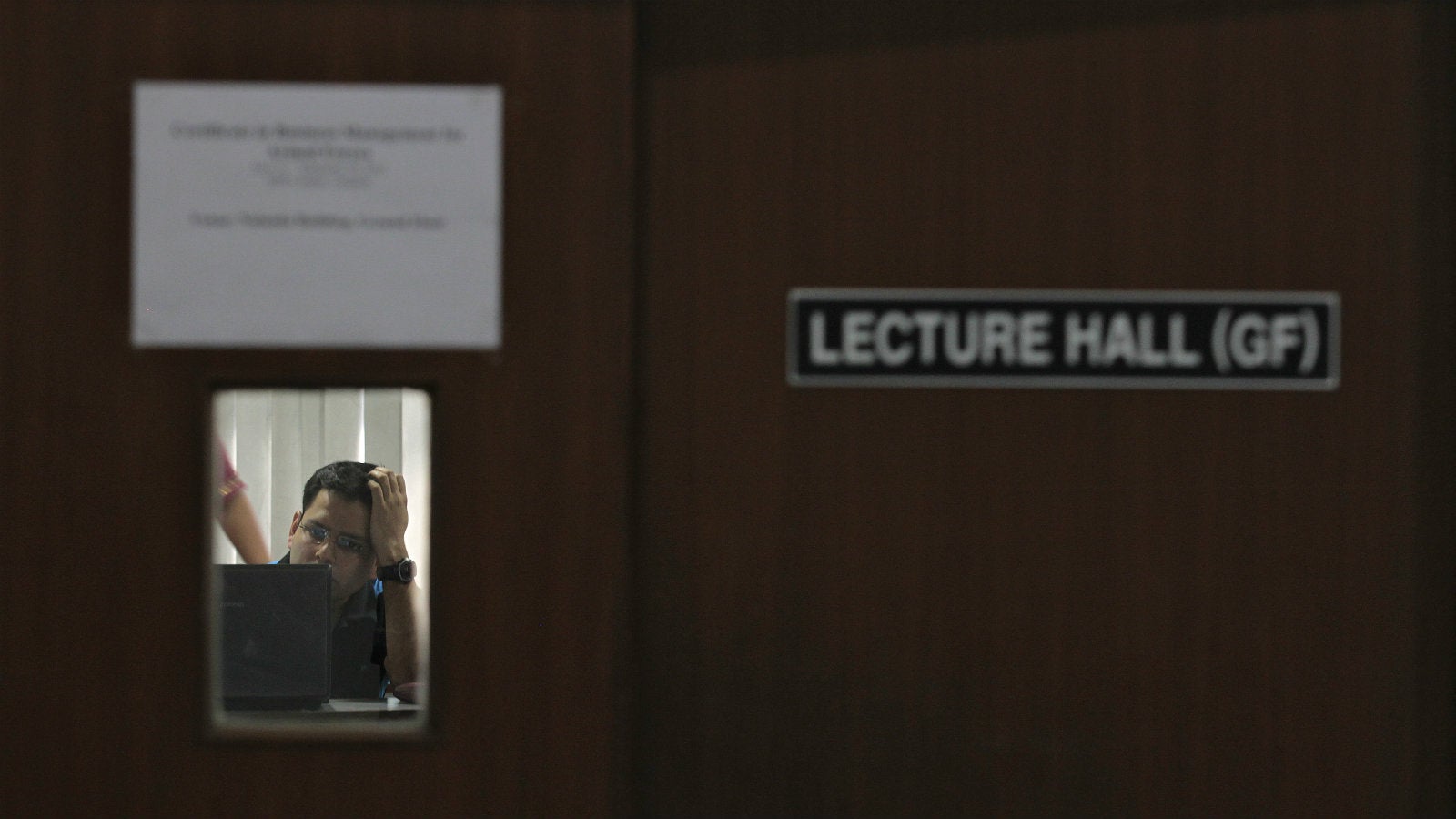Even the IIT heads are now worried about the quality of India’s engineers
Indian techies are having a tough year.


Indian techies are having a tough year.
Engineering graduates from Asia’s third-largest economy have received a load of bad press in the past few months, accused on the one hand of stealing jobs from locals in the US, UK, Australia, and Singapore, and on the other of simply lacking even basic coding skills.
But while the first claim can be countered by the evidence of a serious skills shortage abroad, the second one isn’t easy to dispute. And now, even people in charge of many of India’s elite engineering institutions acknowledge it.
A number of directors of the many Indian Institutes of Technology (IIT) are concerned over the employability of the millions of engineers the country churns out every year, according to a report in The Economic Times newspaper. Though they argue that surveys questioning the quality of as much as 95% of the engineers exaggerate the situation, they believe India’s education system has worsened the problem.
Gautam Biswas, director at IIT-Guwahati, told the Economic Times that the debate over employability does not apply to the IITs, the National Institutes of Technology (NITs), and some Centrally Funded Technical Institutes (CFTIs).
“Some leading state universities, including Jadavpur University and Anna University colleges, are imparting very high-quality education as are private institutes such as BITS (Pilani), VIT, Amity, and SRM, among others,” he added.
The problem, he noted, is that several colleges and universities simply haven’t been able to raise their standards. Students, thus, don’t have access to the right curricula, essential laboratory infrastructure, or good teachers.
Not surprisingly, all this is the result of India’s decades-long, single-minded obsession with engineering.
The rapid growth of India’s IT industry in the 1990s and 2000s prompted hundreds of thousands of students, often pushed by their parents, to pursue a profession that often guaranteed wealth, status, and, with some luck, a one-way ticket out of the country. In response, thousands of engineering colleges of often questionable quality mushroomed across India as an alternative to the IITs, which even today remain notoriously hard to get into.
The consequence of this trend quickly became evident: Without proper training, only a quarter of India’s engineers are employable. Nevertheless, the clamour for engineering programmes has not abated, even as the IT boom has hit a number of speed bumps over the years.
“The country is producing as many as 10 lakh engineers a year. There needs to be a serious review,” Indranil Manna, director, IIT-Kanpur, told The Economic Times. “Do we really need so many engineers? Are there that many jobs?”
Clearly, there aren’t.
Over the past few months, IT giants such as Infosys, Wipro, and Cognizant have all announced plans to fire hundreds of employees. Moreover, as the industry evolves and automation increases, thousands, if not millions, of jobs are at risk.
What’s needed then is education better suited to the changing times, with a more practical and relevant approach to learning. IIT-Guwahati’s Biswas said that soft-skills training and lessons in big-data analytics and the Internet of Things could all be enhanced, even at the IITs. But outside of the well-funded, well-staffed elite institutions, that seems like a tall order.
A better approach would likely require a radical reimagination of how education is imparted across the country, besides a re-evaluation of what the future holds for India’s massive youth population as opportunities dwindle in the technology sector.